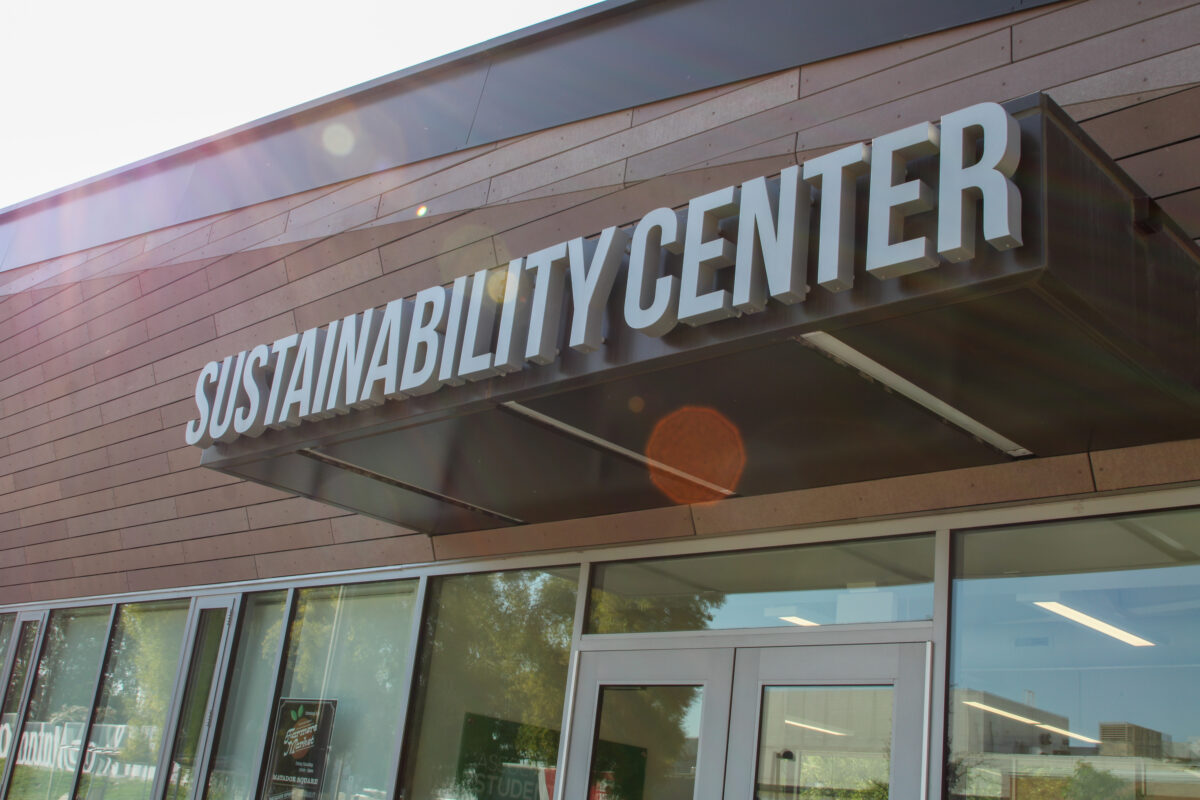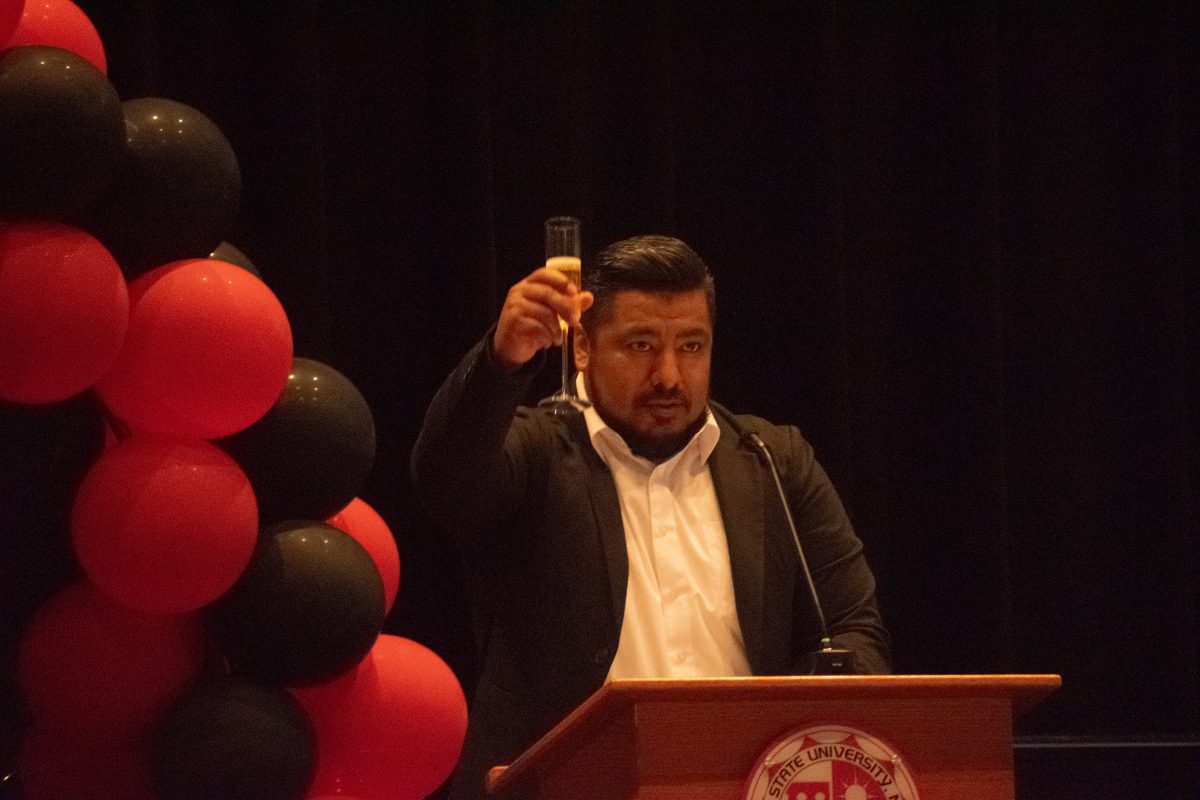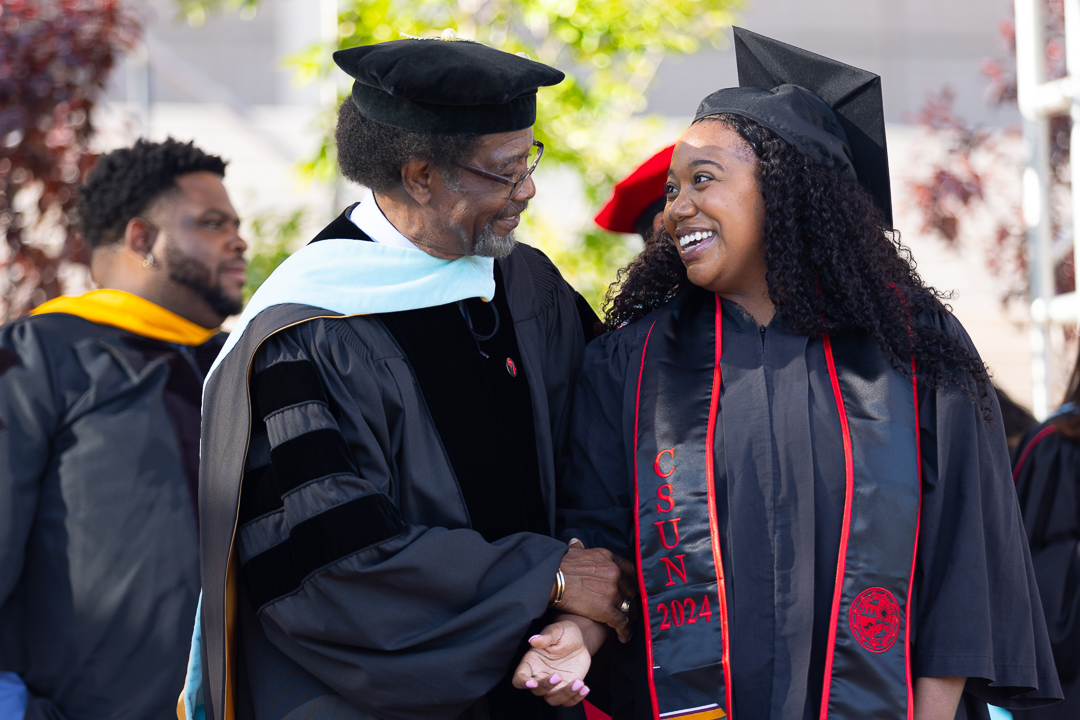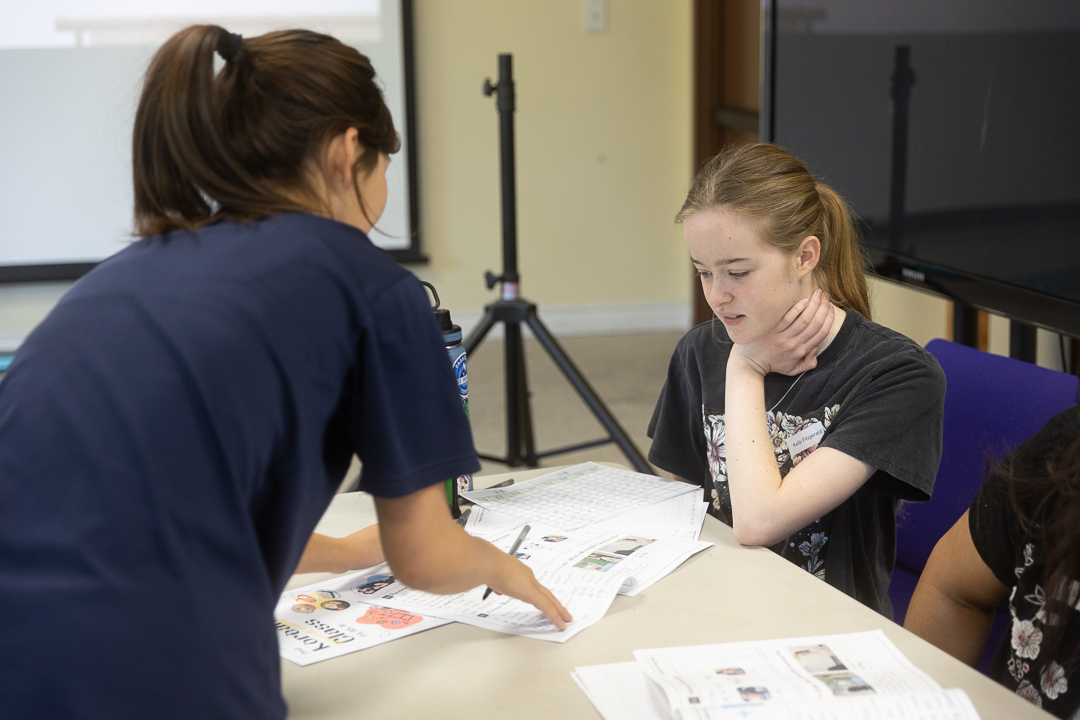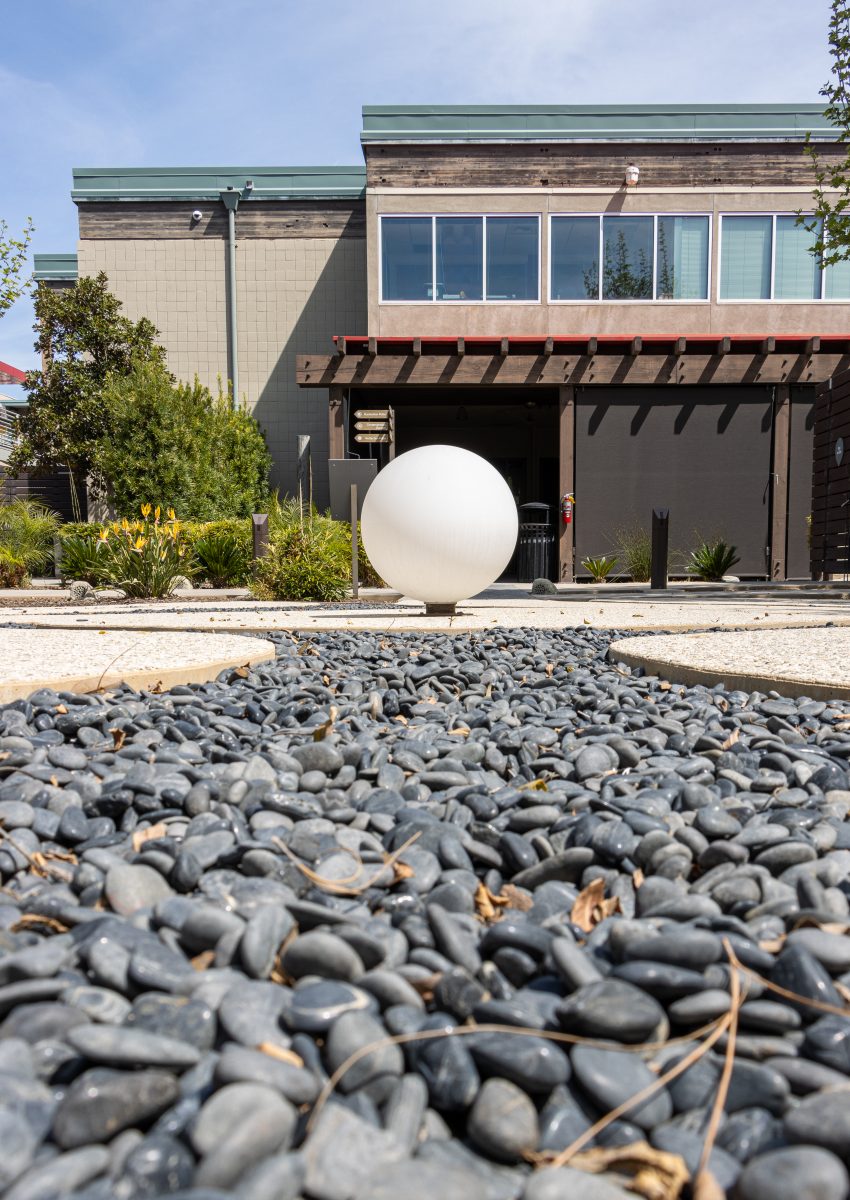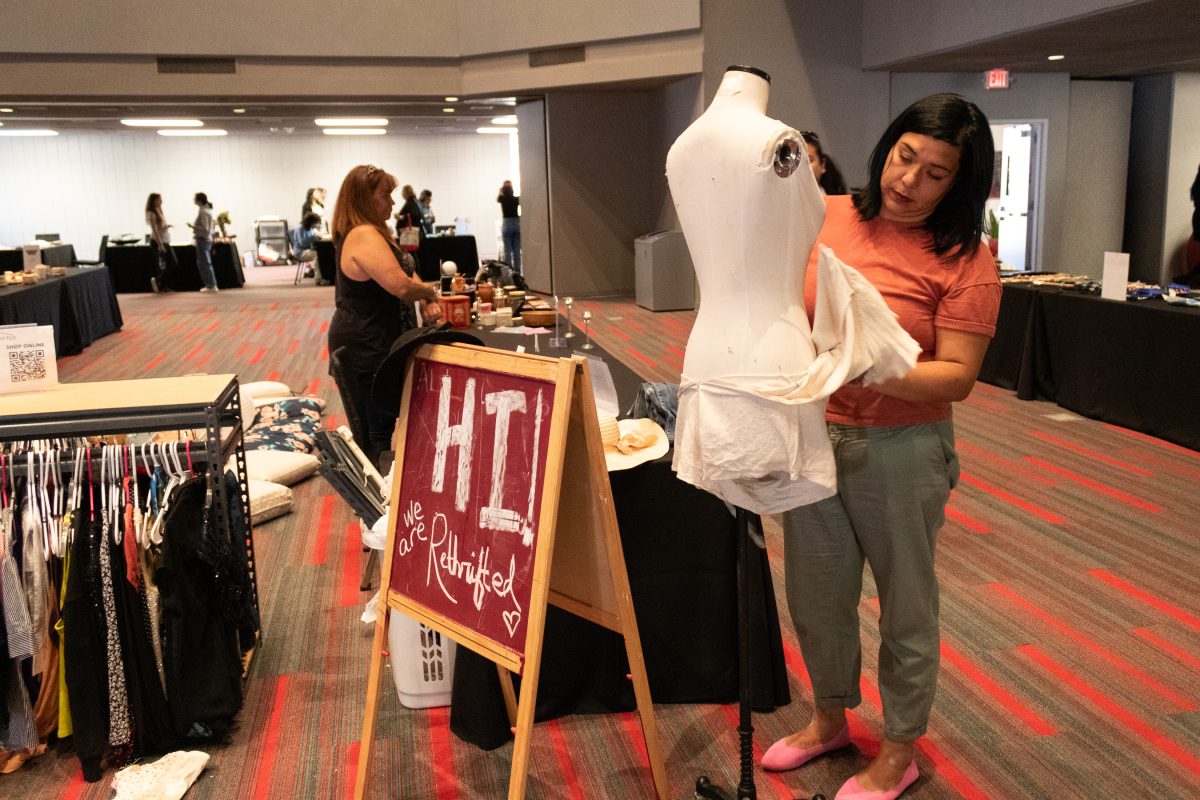In line with its long history of serving marginalized groups, CSUN now seeks to improve its sustainability program by employing a new diversity-focused strategy called the Justice, Equity, Diversity and Inclusion (J.E.D.I.) program.
J.E.D.I. is made up of a set of principles that aim to make college campuses and other institutions more welcoming for students from different backgrounds. These principles were adopted at CSUN after President Erika Beck’s 100 Day Listening Tour in 2021, an event in which the new president engages with the campus community for the first 100 days of their term to get a better sense of what to improve going forward. A main outcome of Beck’s listening tour was to continue improving the campus’s equity, justice and diversity moving forward. One way to do this is to integrate J.E.D.I. into CSUN’s sustainability program.
Alexandra Lohman, the director of equity and compliance at CSUN, believes that what separates J.E.D.I. from other Diversity, Equity and Inclusion (D.E.I.) initiatives is that CSUN staff are trying to go beyond typical CSU guidelines in addressing intolerant campus and student behavior that might not otherwise be addressed in CSU’s nondiscrimination policies.
“We have really been considering what our definitions are of inclusivity and equity as it pertains to certain forms of conduct on campus that may not be an official violation of rules that we as a community don’t tolerate,” Lohman said, “and we’re not going to stand for.”
Sustainability at CSUN is organized by several academic departments, campus administration and student bodies with the intent of maintaining the campus’s natural resources and minimizing emissions by promoting more green practices, such as recycling and the use of bicycles for transportation.
The program is made up of three arms, according to the CSUN sustainability page. The Institute for Sustainability manages the educational aspect of sustainability, as well as community engagement. One way they are going about this is by getting a University 100 class involved with overseeing Clean Air Day to teach their fellow classmates about green practices, like commuting via bus rather than driving.
The other two arms are the facilities planning, design, and construction department, which oversees the implementation of renewable energy projects around campus (such as constructing Satellite Plant Cooling Towers), and the Associated Students Sustainability Office, which hosts events that encourage sustainability (like Clean Air Day).
Sarah Johnson, lead sustainability specialist at CSUN, commented on why sustainability should be a university priority: “We are making it very intentional to prioritize and to include it in everything that we do. So, in our campus operations, in our academics, in the climate, the culture on campus or events, we really try to just integrate sustainability into all those aspects.”
CSUN’s sustainability community is now introducing a plan designed to reach diverse communities by using new J.E.D.I. principles. An important principle of J.E.D.I. in relation to sustainability is to include all communities and majors on campus in the goal of sustainability. According to Johnson, there needs to be an emphasis on getting people from all backgrounds at CSUN to understand the impact of ecological issues, as it affects people from all walks of life. Another step is to hire a more diverse staff. Johnson says the university wants to make sure that the hiring process going forward is equitable, and that when interacting with students, their language is more inclusive so that all communities feel welcomed in CSUN’s sustainability efforts.
J.E.D.I. plans toward achieving sustainability on campus include setting up a fresh food pantry for students experiencing food insecurity, teaching students about the importance of developing eco-friendly habits like taking low-emissions transportation, and planting 25 more trees on campus with first-year students to promote cleaner air on campus.
Johnson elaborated on the importance of diversity in sustainability goals, “CSUN actually is one of the most diverse public universities in the country. So we need to ensure that everybody knows we’re in a climate crisis, and we need to ensure that everybody feels their connection to that climate crisis. And so it’s not just, you know, a white male problem, you know, it’s everyone.”
CSUN has been working under a 10-year sustainability plan, first proposed in 2013. It originally sought to reduce the university’s carbon footprint by conserving resources and promoting sustainable practices in order to reach a net waste of zero by the mid-2020s. CSUN achieved measurable progress toward their goals by 2022, like reducing greenhouse gas emissions by 23% and achieving two gold ratings from the Sustainability Tracking, Assessment & Rating System. CSUN introduced an updated 10-year plan this past June, with a focus on diversity through the implementation of the J.E.D.I. principles.
Lohman stated that there has been a concerted effort to implement initiatives that level the playing field, including “making sure that the end goal of all of this is to ensure students’ success and graduation rates, and making sure there isn’t such huge disparities in the numbers who are successfully graduating from CSUN.”
According to an article from the National Library of Medicine, people who are part of racial minority groups are disproportionately affected by things like climate-related health impacts. Johnson believes that J.E.D.I.’s inclusion into the sustainability roadmap will help all CSUN students see the overlapping connections shared between ecological sustainability and social justice.
“So, [it is] making those connections stronger and more obvious to folks that without social justice, without sustainability, you don’t have either without each other,” said Johnson.
